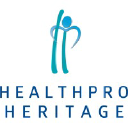The Speech Language Pathologist performs highly advanced therapeutic rehabilitation services in speech language pathology for a wide range of individuals with speech/communication deficits, swallowing and dysphagia challenges, social and pragmatic delays, and cognitive difficulties. Assesses, diagnoses, and analyzes individuals’ skills and abilities in the areas of speech, language, and cognitive-communication, and related to oral, pharyngeal, and esophageal function to identify swallowing impairments. Conducts and/or collaborates in conducting diagnostic assessments, and administers and interprets assessments related to speech, language, and communication skills of individuals. Develops, implements, and oversees therapeutic habilitative and rehabilitative programs, and provides treatment and clinical services for individuals. Collaborates consistently with other departments to ensure comprehensive care and continuity of services and to maximize therapeutic efficacy. Trains, instructs, and/or supervises the work of others in conducting habilitation and rehabilitation activities specific to recommendations and treatment. Coordinates, assigns, trains, and supervises the work of assigned staff and/or student interns. Monitors implemented programs/plans for compliance and efficacy to ensure quality of care and patient well-being and provides feedback to staff. Updates and revises or develops new programs and treatment protocols based on outcomes. Oversees and coordinates quality assurance and quality enhancement activities as related to the provision of therapeutic services at the SSLC. Maintains competency within the scope of practice in order to serve as the Center’s recognized subject matter expert on matters related to speech, language, and swallowing disorders. Attends assigned meetings, collaborates with allied health professionals, IDTs, and administration to ensure the transfer of needed information and continuity of services. Performs quality documentation in the electronic medical record. Performs other duties as assigned. Works under minimal supervision, with extensive latitude for the use of initiative and independent judgment.
Essential Job Functions
- Assesses, diagnoses, and analyzes individuals’ skills and abilities in the areas of speech, language, and cognitive-communication. Performs routine hearing screens and makes necessary referrals, as assigned in accordance with local protocols. Administers and interprets assessments related to speech, language, and communication skills of individuals. Uses advanced instrumentation and specialized training in the assessment process. Utilizes a framework that includes culturally and linguistically appropriate behavioral observation, standardized and/or criterion-referenced tools, use of instrumentation, informal assessment, review of records, case history, prior test results, and interviews of the individual and/or family/caregiver to guide decision making, evaluation of body function, structure, activity, participation, within the context of environmental and personal factors. Analyzes data and synthesizes information gathered from evaluation in thorough and individualized written reports.
- Assesses, diagnoses, and analyzes individuals’ skills and abilities related to oral, pharyngeal, and esophageal function to identify swallowing impairments. Conducts and/or collaborates in conducting diagnostic assessments related to dysphagia diagnosis and treatment/management, such as modified barium swallow studies, in accordance with local protocols. Collaborates with professionals on the IDT, including radiologists, occupational and physical therapists, and dieticians, to develop and implement treatment plans, such as texture and/or consistency modifications and recommending individualized safe swallowing strategies on the dining plan.
- Develops, implements, and oversees therapeutic habilitative and rehabilitative programs, and provides treatment and clinical services for individuals such as treatment to establish a new skill or ability, remediate, or restore an impaired skill. Plans, develops, and implements complex Physical Nutritional Management Programs (PNMP) and treatment protocols to treat, improve, and/or maintain the individual's level of health and function related to dysphagia and communication. This includes diet texture/liquid consistency protocols, and the use of adaptive eating equipment/compensatory strategies to mitigate choking and aspiration risks, as well as recommendations to enhance communication such as designing individualized Augmentative and Alternative Communication (AAC) systems, recommendations for direct therapy services, and/or development of individualized communication dictionaries and/or strategies. Collaborates consistently with other disciplines (behavioral health, OT/PT, social services, psychiatry, dental, QIDPs, nursing, medical/PCPs), IDTs, and administration to ensure comprehensive care and continuity of services and to maximize therapeutic efficacy. Submits data for budgets and speech therapy supplies, and assessment materials.
- Monitors implemented programs/plans for compliance and efficacy to ensure quality of care and patient well-being. Provides real-time feedback to staff and others involved in direct care and rehabilitation programs. Reviews and analyzes progress reports, tracks and trends data pertaining to services. Updates and revises or develops new programs and treatment protocols based on outcomes.
Registration Or Licensure Requirements
- Current Licensure in Speech Language Pathology is required.
- Certificate of Clinical Competence in Speech-Language Pathology (CCC-SLP) is preferred.
- Graduation from an accredited college or university program with major course work in speech language therapy or speech language pathology.
#J-18808-Ljbffr



















